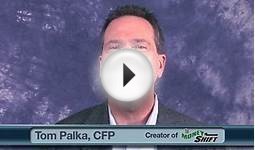Decision making in Healthcare management

Statement of the Issue
Ethical decision making is required when the healthcare executive must address a conflict or uncertainty regarding competing values, such as personal, organizational, professional and societal values. Those involved in this decision-making process must consider ethical principles including justice, autonomy, beneficence and nonmaleficence as well as professional and organizational ethical standards and codes. Many factors have contributed to the growing concern in healthcare organizations over ethical issues, including issues of access and affordability, pressure to reduce costs, mergers and acquisitions, financial and other resource constraints, and advances in medical technology that complicate decision making near the end of life. Healthcare executives have a responsibility to address the growing number of complex ethical dilemmas they are facing, but they cannot and should not make such decisions alone or without a sound decision-making framework.
Healthcare organizations should have mechanisms that may include ethics committees, ethics consultation services, and written policies, procedures and guidelines to assist them with the ethics decision-making process. With these organizational mechanisms and guidelines in place, conflicting interests involving patients, families, caregivers, the organization, payors and the community can be thoughtfully and appropriately reviewed.
Policy Position
It is incumbent upon healthcare executives to lead in a manner that sets an ethical tone for their organizations. The American College of Healthcare Executives (ACHE) believes that education in ethics is an important step in a healthcare executive’s lifelong commitment to high ethical conduct, both personally and professionally. Further, ACHE supports the development of organizational mechanisms that enable healthcare executives to appropriately and expeditiously address ethical conflicts. Whereas physicians, nurses and other caregivers may primarily address ethical issues on a case-by-case basis, healthcare executives also have a responsibility to address those issues at broader organizational, community and societal levels. ACHE encourages its members, as leaders in their organizations, to take an active role in the development and demonstration of ethical decision making.
You might also like



|
Governing the Commons: The Evolution of Institutions for Collective Action (Political Economy of Institutions and Decisions) Book (Cambridge University Press)
|
The Guinness World Record for the Largest Data Warehouse: A Q&A with Tom .. — B-EYE-Network
Business unIntelligence—Insight and Innovation Beyond Analytics and Big Data Summary Is there still a need for the data warehouse? In this excerpt from his new book, Barry Devlin looks at why the data warehouse can no longer retain its old role of ..

|
Common Sense Purchasing: Hard Knock Lessons Learned From a Purchasing Pro Book (Apollo Solutions)
|




